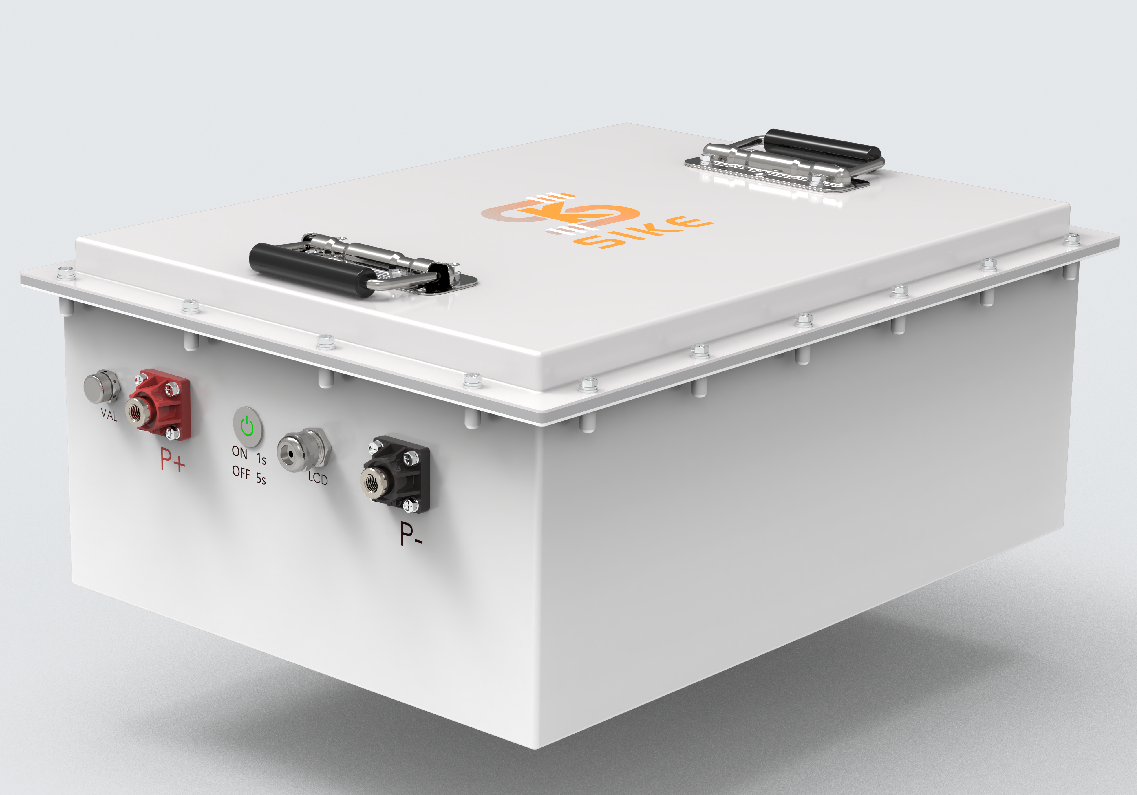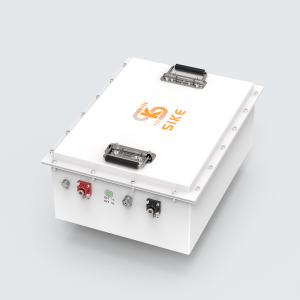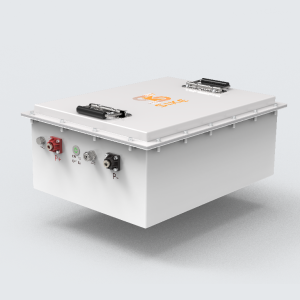Leading Lithium Golf Cart Batteries Manufacturer in China
Looking for a reliable manufacturer of lithium golf cart batteries? Look no further and choose Sike Power.
Sike Power is a professional lithium golf cart battery manufacturer supplier factory in China, using the top quality EV grade lithium cells and BMS, our lithium 12v deep cycle marine battery is a best choice for your marine applications. If you need OEM or ODM servince, contact us today to find the best lithium marine batteries for your business.
Your Best Lithium Golf Cart Battery Partner
Sike Power's first grade golf cart lithium battery delivers more power and super performance beyond your expectations
What is a Golf Cart Battery?
A golf cart battery is a specialized type of deep-cycle battery designed to power electric golf carts, which are commonly used on golf courses and in recreational settings. Unlike standard automotive batteries, which are primarily designed for starting engines and delivering short, high-current bursts, golf cart batteries are engineered to provide a steady flow of power over extended periods. This is crucial for golf carts, which often operate for several hours on a single charge, covering distances and handling varying terrains.
The core function of these batteries is to supply the necessary voltage and amperage to drive the electric motor, ensuring smooth operation, acceleration, and range. Golf carts typically require a system voltage of either 36V or 48V, achieved by connecting multiple individual batteries in series. For example, a 36V system might use six 6V batteries, while a 48V system could use four 12V batteries or six 8V batteries, depending on the configuration.
Types of Golf Cart Batteries
- Flooded Lead-Acid Batteries: These are the most common and traditionally used type, known for their affordability and widespread availability. They consist of lead plates submerged in an electrolyte solution, typically sulfuric acid. Flooded lead-acid batteries require regular maintenance, including checking and topping up electrolyte levels with distilled water, as well as periodic cleaning to prevent corrosion. They have a typical lifespan of 3-5 years with proper care, but their performance can degrade if frequently discharged below 50%, which can shorten their life.
- AGM (Absorbent Glass Mat) Batteries: AGM batteries are a sealed, maintenance-free variant of lead-acid batteries, where the electrolyte is absorbed into a fiberglass mat between the plates. This design makes them more resistant to vibration, spill-proof, and suitable for cold temperatures. They offer a longer lifespan than flooded lead-acid batteries and do not require watering or venting systems, making them easier to maintain. However, they are more expensive upfront, which may be a consideration for budget-conscious users.
- Lithium-Ion Batteries: Lithium-ion batteries, particularly lithium iron phosphate (LiFePO4) variants, have gained popularity in recent years due to their advanced performance. They are lightweight, offer consistent power output throughout their discharge cycle, and can handle frequent deep discharges without significant degradation. Lithium-ion batteries charge faster, often 5 times quicker than lead-acid, and have a significantly longer lifespan, with some models lasting up to 10 years or more, enduring up to 3,500 charge cycles compared to 300-500 for lead-acid. However, their higher initial cost can be a barrier, though they may save money over time due to reduced replacement frequency and lower maintenance needs.

Voltage and Configuration
The voltage requirement is a critical factor in golf cart battery systems. Most electric golf carts operate at 36V or 48V, determined by the motor and controller specifications. To achieve these voltages, multiple batteries are connected in series, where the positive terminal of one battery is connected to the negative terminal of the next, adding their voltages. For instance:
- A 36V system can be configured with six 6V batteries (6V x 6 = 36V) or three 12V batteries (12V x 3 = 36V).
- A 48V system might use eight 6V batteries (6V x 8 = 48V), six 8V batteries (8V x 6 = 48V), or four 12V batteries (12V x 4 = 48V).
The choice of configuration depends on the golf cart model, with common setups including “6×6” (six 6V batteries) for 36V or “6×8” (six 8V batteries) for 48V. Users should consult their cart’s manual to determine the correct voltage and battery type, as using incorrect batteries can lead to performance issues or damage.
Cost and Value Considerations
The cost of golf cart batteries varies widely. Flooded lead-acid batteries are the most affordable, with prices typically ranging from $100 to $200 per battery, depending on capacity and brand. A full set for a 36V or 48V system can cost $600 to $1,500, including installation and cables. AGM batteries are more expensive, often $200-$300 per battery, while lithium-ion batteries have a higher upfront cost, with sets ranging from $1,200 to $3,000 or more, depending on capacity and brand.
While lithium-ion batteries are initially more expensive, their longer lifespan and lower maintenance needs can lead to savings over time. For example, replacing lead-acid batteries every 3-5 years could cost more in the long run compared to a single lithium-ion set lasting 10 years. Users should consider their usage patterns, budget, and long-term cost-effectiveness when choosing.
Why Choose Lithium Golf Cart Batteries
Lithium golf cart batteries outperform traditional lead-acid batteries in several ways. They last longer, typically 8–15 years or 2,000–5,000 charge cycles, compared to 3–5 years for lead-acid. Being 50–60% lighter, they improve cart efficiency, speed, and range. Lithium batteries charge faster (2–5 hours) and handle partial charging without damage. They deliver consistent power, ensuring reliable performance, and are maintenance-free, eliminating watering or corrosion cleanup. Additionally, they’re more energy-efficient, reducing electricity costs, and eco-friendly, containing no toxic lead or acid. Despite higher upfront costs, their durability and performance make them a cost-effective choice for golf cart owners.
Comparison of Different Golf Cart Battery Types
| Attribute | Flooded Lead-Acid | AGM | Lithium-Ion |
|---|---|---|---|
| Initial Cost | Low ($100-$200 per battery) | Medium ($200-$300 per battery) | High ($1,200-$3,000 per set) |
| Maintenance | High (watering, cleaning) | Low (sealed, no watering) | Very Low (none required) |
| Lifespan | 3-5 years (300-500 cycles) | 5-7 years (500-800 cycles) | 10+ years (3,500+ cycles) |
| Weight | Heavy | Heavy | Lightweight (1/4 of lead-acid) |
| Charging Time | 8-12 hours | 6-8 hours | 2-4 hours |
| Performance | Good, degrades with discharge | Better, consistent output | Excellent, consistent output |
| Suitability | Budget-conscious users | Low-maintenance users | Long-term, high-performance users |
Golf Cart Batteries: Lithium VS Lead Acid
Upgrade to Lithium Golf Cart Battery
Why Choose Sike Power Lithium Golf Cart Batteries?
Factory cheap price: enjoy factory cheap price from us and gain more benefits
Superior Quality: ONLY use TOP brand EV grade A cells and BMS, self design robust mechanical design.
Customizable OEM/ODM Solutions: Tailor-made to fit your specific needs.
Massive Production Capacity: ship your order in a short time, accelerate goods sales
Ready to OEM branding your golf cart battery?
At Sike, we’re committed to delivering best golf cart lithium batteries, our golf cart batteries are designed with ultra safety. Whether you’re looking to find a OEM lithium golf cart battery manufacturer or ODM design cooperative partner, you are in the right place.
Contact us today to discuss your golf cart battery needs and get a quote from us. Let us help you elevate your business.
Whatsapp/Wechat: +86-19849875727
Email: sike@sike-power.com


